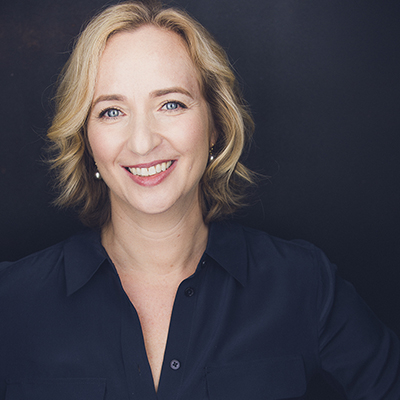 Booker in action.
Booker in action.
One of the more remarkable aspects of the MAGA ideology is how often it fulfills the left-wing policy wish list. The latest example is a proposal for so-called MAGA accounts, which
Under the plan, every baby born between 2025 and 2029 will get $1,000 from the government in a MAGA account (it stands for Money Account for Growth and Advancement). The general idea was popularized by Democratic Senator
There are some promising features of the plan. But it risks becoming another expensive way to paper over existing policy failures.
Under the current proposal, parents can deposit an additional $5,000 a year (indexed to inflation). The money will be invested in a low-cost stock index fund and can't be accessed until the account holder is 18. After age 18, the funds may be used for education, buying a home, or starting a business, and are subject to the capital gains tax. If the funds are used for a non-qualified expense before age 30, there will be an additional 10% tax. At age 31, the account will be terminated and the funds disbursed.
First, I should note that I find all of this sort of strange. To me, the main purpose of government is to create an environment in which citizens can thrive on their own. Giving everyone a check on day one seems to cut against that. That said, many young people are in fact burdened by the high cost of education or can't afford a home. The amount of student debt has been growing steadily, and the cost of education has lately outpaced the rate of inflation. House prices have been on the rise, and the average age of buying a first home is rising.
So it's undeniable that many young people today would've benefited from a MAGA account. At the same time, the rising cost of both housing and education is the result of government policies which subsidize demand and restrict supply, bidding up prices. From a policy and fiscal standpoint, and it would be better to undertake regulatory reforms in the housing market and higher education, including how they are financed, to make both these things more accessible. In some ways, MAGA accounts are just subsidizing further demand.
The other supposed benefit is that MAGA accounts grow wealth for children from poor families. But they are not necessarily the best way to address inequality, which largely depends on factors such as whether your parents can give you a head start — an inheritance, financial support for education, help with rent, a down payment for a house, and so on. If the goal is more equality, the accounts should be more targeted to families who need them. The option to deposit more money has the potential to worsen inequality. It is also duplicative of existing 529 college savings plans.
All this aside, however — there are worse policies. In some ways this is an improvement on the Booker plan, which invested the accounts in low-risk bonds that paid 3% a year, and had loftier goals like eliminating racial inequality. The 3% guaranteed returns would've meant less risk, but also probably less growth.
One of the great benefits of the expansion of 401(k) participation over the last several decades is that it got more Americans invested in the stock market. MAGA accounts would expand stock ownership even further — and from birth, which means more Americans would be invested in America's prosperity. I would just note that this program is addressing problems that the government created in the first place.
(COMMENT, BELOW)
Allison Schrager, a Bloomberg columnist, is a senior fellow at the Manhattan Institute and a contributing editor of City Journal.
Previously:
• Reality Check about possibile volatility in trade war
• Is this really how American exceptionalism ends?
• The free-market conservative is a vanishing breed
• Shareholder capitalism is back
• Europe's risk aversion comes with consequences
• The Oxford curriculum that American universities need
• Private equity won't diversify your portfolio
• The era of declining interest rates may have come to an end, and many investors don't seem to realize it
• This one weird trick could save the U.S. economy
• The Fed's damage to the housing market may last years
• The future of unions looks very different
• To bring back the office, bring back lunch
• Does it really matter who gets into Harvard?
• Our pensions shouldn't be used to juice the economy
• A soft landing won't mean the economy is safe
• The 30-year mortgage is saving the U.S. economy … or is it?
• The one true secret to successful investing
• Less work, more burn-out
• When did risk become a bad word in the U.S.?
• AI-proofing your career starts in college
• Biden has to learn the same lesson as SVB
• Say it with Rubio: Changing clocks is stupid
• Sure, we'll return to the office in 2023 but not to stores
• How to manage the biggest risk of all: Uncertainty
• If you think U.S. pensions are safe, just wait
• Harry and Meghan and the perils of superstar culture
• Norman Rockwell's economy is never coming back
• Burned by crypto? Don't learn the wrong lesson
• Quiet Quitters are looking in the wrong place for meaningful work
• America's MBAs are the latest skeptics of capitalism
• Generation Z is getting a harsh lesson in stock risk
• The biggest threat to the U.S. economy is policymakers
• Buck up, boomers. You're still better off than your parents
• How to manage the biggest risk of all: uncertainty
• Startup boom is the kind of risk-taking Americans need
• Gen Z is too compliant to achieve greatness
• A bigger child tax credit isn't the poverty solution we need
• Finding your power in a higher-priced world
• The Biden administration's plans to double the tax rate on capital gains will prove costly to all Americans, not just the wealthy
• WARNING: Feel Good Now --- Pay Later: Stimulus is crammed with goodies but makes no economic sense
• The 'Stakeholder' Fallacy: Joe Biden's vision of capitalism is a recipe for failure


 Contact The Editor
Contact The Editor
 Articles By This Author
Articles By This Author